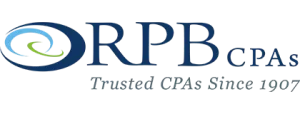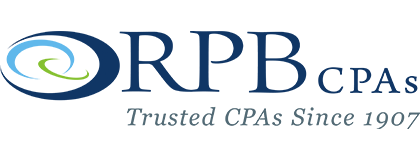Non-Profit Entity Newsletters
Auditing grant compliance
Has your organization received any public or private grants to fund its growth? Grants sometimes require an independent audit by a qualified accounting firm. Here’s what grant recipients should know to help facilitate matters and ensure compliance at all levels. Federal compliance Federal awards require compliance with the Uniform Administrative Requirements, Cost Principles, and Audit Requirements for Federal Awards (also known as 2 CFR Part 200). This guidance requires any entity that expends $750,000 or more of federal assistance received for its operations to undergo a “single audit,” which is a rigorous, organizationwide examination. To provide grant recipients with
Is it time to hire a CFO or controller?
Many business owners reach a point where managing the financial side of the enterprise becomes overwhelming. Usually, this is a good thing — the company has grown to a point where simple bookkeeping and basic financial reporting just don’t cut it anymore. If you can relate to the feeling, it may be time to add a CFO or controller. But you’ve got to first consider whether your payroll can take on this generally high-paying position and exactly what you’d get in return. The broad role A CFO or controller looks beyond day-to-day financial management to do more holistic, big-picture
Should you revise your nonprofit’s bylaws?
Your not-for-profit has likely grown and evolved since it was founded. Have your bylaws kept pace? Bylaws are the rules and principles that define your organization — and, if you haven’t revisited them recently, they may not be as effective as they could be. Rules and procedures Typically, bylaws cover such topics as the broad charitable purpose of an organization. They also include rules about the size and function of the board; election terms and duties of directors and officers; and basic guidelines for voting, holding meetings, electing directors and appointing officers. Without being too specific, your bylaws should
Fiduciary duties: What your board members need to know
Not-for-profit board members — whether compensated or not — have a fiduciary duty to the organization. Some states have laws governing the activities of nonprofit boards and other fiduciaries. But not all board members are aware of their responsibilities. To protect your nonprofit’s financial health and integrity, it’s important that you help them understand. Primary responsibilities In general, a fiduciary has three primary responsibilities: Duty of care. Board members must exercise reasonable care in overseeing the organization’s financial and operational activities. Although disengaged from day-to-day affairs, they should understand its mission, programs and structure, make informed decisions, and consult
Does your nonprofit need a CFO?
Your not-for-profit’s ability to pursue its mission depends greatly on its financial health and integrity. If your nonprofit is growing and your executives are struggling to juggle financial responsibilities, it may be time to hire a chief financial officer (CFO). Core responsibilities Generally, the nonprofit CFO (also known as the director of finance) is a senior-level position charged with oversight of accounting and finances. He or she works closely with the executive director, finance committee and treasurer and serves as a business partner to your program heads. A CFO reports to the executive director or board of directors on
How to outsource your nonprofit’s human resources function
Outsourcing human resources can give your not-for-profit’s staff more time to spend on core duties and mission-driven programs and it may be cost-effective. Here are some suggestions if you’re thinking about outsourcing part or all of your HR tasks. First steps First, decide which segments of the HR function to farm out. Take a look at payroll, recruiting, training, benefits planning and administration, compliance monitoring, leave management and performance reviews. These are all labor-intensive responsibilities where expertise counts. Transferring all or some of them to the right outside party can vault your organization to a higher level of professionalism
Audits home in on cybersecurity
In 2018, U.S. organizations that suffered a data breach lost an average of $7.91 million as a result. That’s the highest average organizational cost of all the countries and regions covered in the 2018 Cost of a Data Breach Study by IBM and independent research firm Ponemon Institute. Malicious or criminal attacks were the source of more than half of those breaches, rather than system glitches and human errors. With so much at stake, it’s no surprise that auditors consider these issues when conducting their audit risk assessments. This audit season, prepare to answer questions about cybersecurity and the effectiveness



